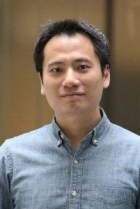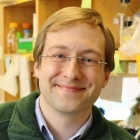Welcoming New Faculty

Y. Chris Li, PhD
Prof. Chris Li joined the Department of Chemistry in the Fall 2020 as an assistant professor. Chris completed his BS degree in Chemical Engineering at the University of California, Davis in 2010. He subsequently worked in the chemical industry for three years as a R&D engineer before joining the Pennsylvania State University for graduate study. He received his PhD degree in Chemistry (2018) with Prof. Tom Mallouk and joined Prof. Ted Sargent’s group at the University of Toronto for a postdoctoral position in July 2018.
Chris’ research contributions include a total of 30+ journal publications and 2 patent/invention disclosures – spanning research areas in electrochemistry, heterogeneous catalysis, surface mediated reactions and spectroscopy. In particular, Chris has published a number of studies on the development of efficient catalysts and electrochemical systems for the conversion of CO2 into valued-added chemicals, such as syngas an ethanol.
At the University at Buffalo, Chris’ group will explore different electrochemical reactions and system designs to achieve carbon neutral fuels and chemicals. Electrochemical reactions are influenced by a number of forces – surface binding, solvation, hydrogen bonding, van der Waals and more. Chris’ group applies a combination of electroanalytical and spectroscopic techniques to elucidate the influences of these forces on the catalytic performances, thus enabling better control in the catalytic activity and selectivity. The goal of the research program is to design new chemical transformations in electro- inorganic and organic synthesis with small molecules as building materials, such as CO2, H2O, N2, methane or sugar. Chris’ group will offer research opportunities for undergraduate, graduate student and postdocs who are interested in electrochemistry, inorganic materials, chemical engineering and materials science.
We welcome Profs. Heppner and Li to the Department of Chemistry!

David E. Heppner, PhD
Prof. Heppner began his research career in copper bioinorganic chemistry at the University of Minnesota where he earned his BS Summa Cum Laude in the labs of Profs. Christopher J. Cramer and William B. Tolman. He then moved to Stanford University where he continued studies of copper metalloproteins completing his PhD with Prof. Edward I. Solomon in 2014. To gain training in biomedical research and drug discovery, he then pursued an NIH postdoctoral fellowship at the University of Vermont with Prof. Albert van der Vliet, followed by a postdoctoral fellowship at the Dana-Farber Cancer Institute and Harvard Medical School with Prof. Michael J. Eck.
At the University at Buffalo, Prof. Heppner’s research seeks to enable translational medicines from a structural perspective in areas such as targeted cancer therapies and antioxidant-dependent processes in biology. The Heppner lab combines techniques from structural biology, medicinal chemistry, biochemistry, and cell biology to span drug discovery and development from the identification of first-in-class inhibitor compounds, lead optimization through structure-guided drug design, and pre-clinical validation. At home in the Chemistry Department at UB, the Heppner Lab also partners with scientists locally at the Hauptman-Woodward Medical Research Institute and the Roswell Park Comprehensive Cancer Center.